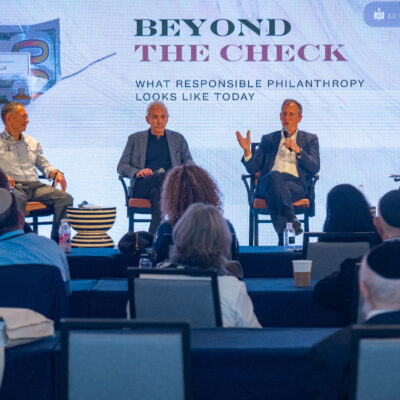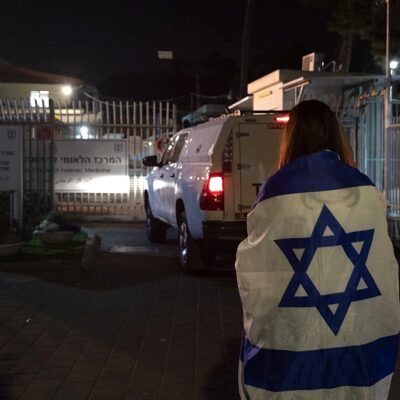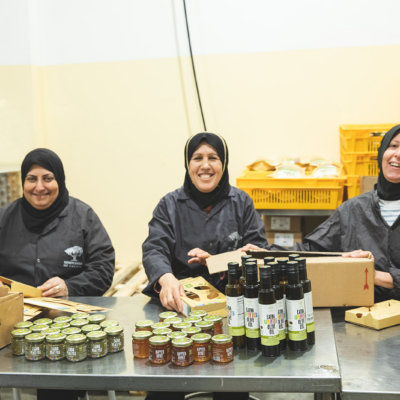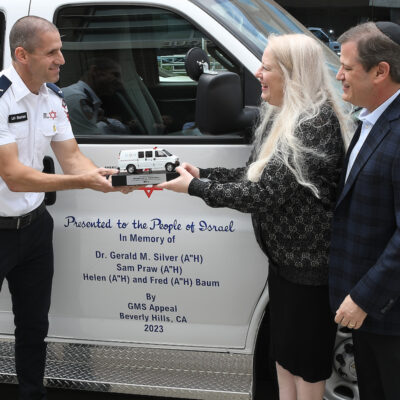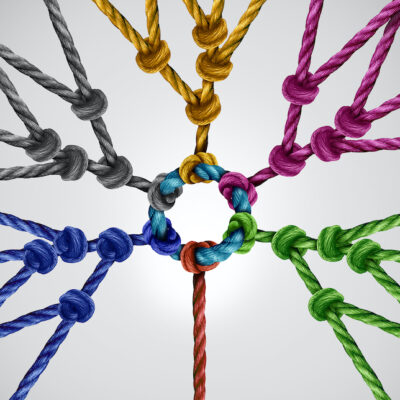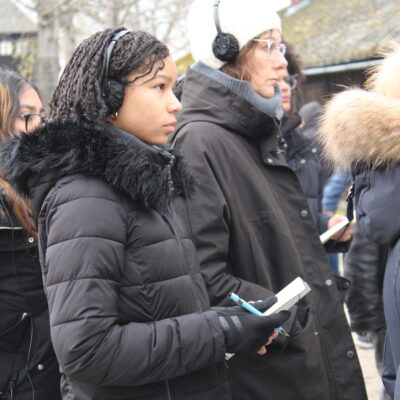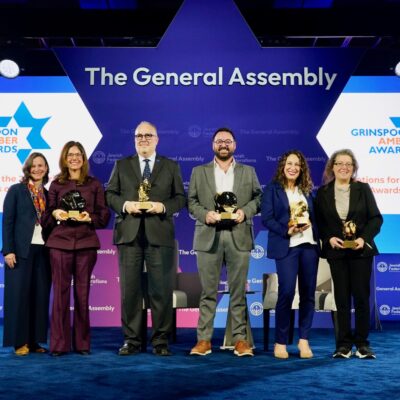SURVEY SAYS
Study finds 37% of Jewish groups got new donors post-Oct. 7; will they hold onto them?
New poll by CCS Fundraising consulting firm looks at philanthropic trends in the Jewish community after the Oct. 7, finding increased giving to Israel-related groups immediately after the attacks and new donor priorities

GETTY IMAGES
Illustration. A person puts a penny into a 'tzedaka' box.
Nearly 40% of Jewish organizations have received donations from new sources since the Oct. 7 terror attacks, according to a recent survey by the CCS Fundraising consulting firm. This represents a significant opportunity to expand their donor pool — provided they are able to capitalize on it, one of the authors of the study told eJewishPhilanthropy.
“I think we’re seeing large philanthropists across the country give more Jewishly because this has really hit home,” said Douglas London, managing director of CCS Fundraising, referring to the deadly Hamas attacks and the worldwide surge in antisemitism that followed.
“We found that about 37% of organizations saw new donors since Oct. 7. So it was an opportunity for donor acquisition for organizations large and small. The challenge is that many of these organizations are not equipped to cultivate and steward donors at the level for which they received gifts,” he said.
The study, which was conducted between May 20 and June 10, surveyed 73 organizations across the United States, including synagogues, foundations, schools, federations, advocacy groups and campus organizations, with operating budgets ranging from less than $1 million to more than $500 million. Most of the respondents from the organizations were either the heads of fundraising or the top executive.
The survey tracked giving patterns from Oct. 2023 to May 2024, looking at changes to “philanthropic income” during that period, as well as the types of donors and the mission of the receiving organization.
Unsurprisingly, most organizations — 56% — reported the greatest increase in donations in the three months immediately following the Oct. 7 attacks, followed by a dip in the beginning of 2024, when 25% reported an increase, compared to 56% that reported that giving levels had remained the same. There was a brief rise in increased donations in March, followed by another decrease in April and May, accompanied by a nearly equal rise in organizations reporting no change in giving. Throughout this period, between 15% and 19% of organizations reported seeing a decrease in “philanthropic income.”
Also perhaps expectedly, the early months of the war saw an increase in donations to organizations with a focus on Israel, the report found. Among Israel-focused groups, 57% reported an increase in support to their annual fund, compared to 19% of non-Israel-focused organizations that saw a rise in donations. Most non-Israel-focused groups — 52% — reported no change in their support.
A large majority of organizations anticipated that these trends would continue, with 77% saying that they believed “that giving will increase or remain the same if the Israel-Hamas conflict continues,” according to the survey.
In addition to the 37% of organizations who reported receiving gifts from new donors, 27% reported receiving greater donations from existing ones.
“Those gifts might just be a one-time gift because they wanted to do something to support Israel and they’re never going to give again… I would imagine that of the new donors, at least half of them are going to be one-time donors, and I think that’s pretty standard with crisis giving… I think that that will be the case for many. But there will be some that will be retained,” London said.
“[Organizations should be] thinking about how we build relationships with all of those donors to ensure that they’re converted into lifetime donors. There has to not just be a passion for Israel and the Jewish people, it needs to stem beyond that crisis moment.”
The survey, which was released last month, also looked into how organizations responded to the post-Oct. 7 crisis. CCS Fundraising found that most groups did not change their fundraising campaigns after the attacks, but that Israel-focused organizations were more likely to have made changes than non-Israel-focused ones. Of the Israel-focused groups, 57% said they did not change their fundraising campaigns, with 19% saying they paused an existing campaign because of the crisis and 14% saying they launched a new campaign. Among non-Israel-focused groups, 85% said they did not change their fundraising strategies.
Looking ahead, the surveyors asked respondents about donor priorities, finding that the most important issues for donors were related to combating antisemitism, with 61% listing it as their top priority, either in general terms (23%), regarding improving security at Jewish institutions (20%) or specifically addressing it on college campuses (18%). Nearly a quarter — 24% — listed support for Israel as their top priority, 13% said it was “enriching Jewish life” and 1% said it was “Jewish youth education.”
London said that while organizations should take donor priorities into consideration, it does not mean that they have changed or should change their missions to match them.
“I remember I was meeting with a rabbi, maybe the Monday or Tuesday after Oct. 7,” London said. “And we talked about if they should keep going with their capital campaign or do they pause, and she said, ‘No, the Jewish community needs us now more than ever.’”

 Add EJP on Google
Add EJP on Google





